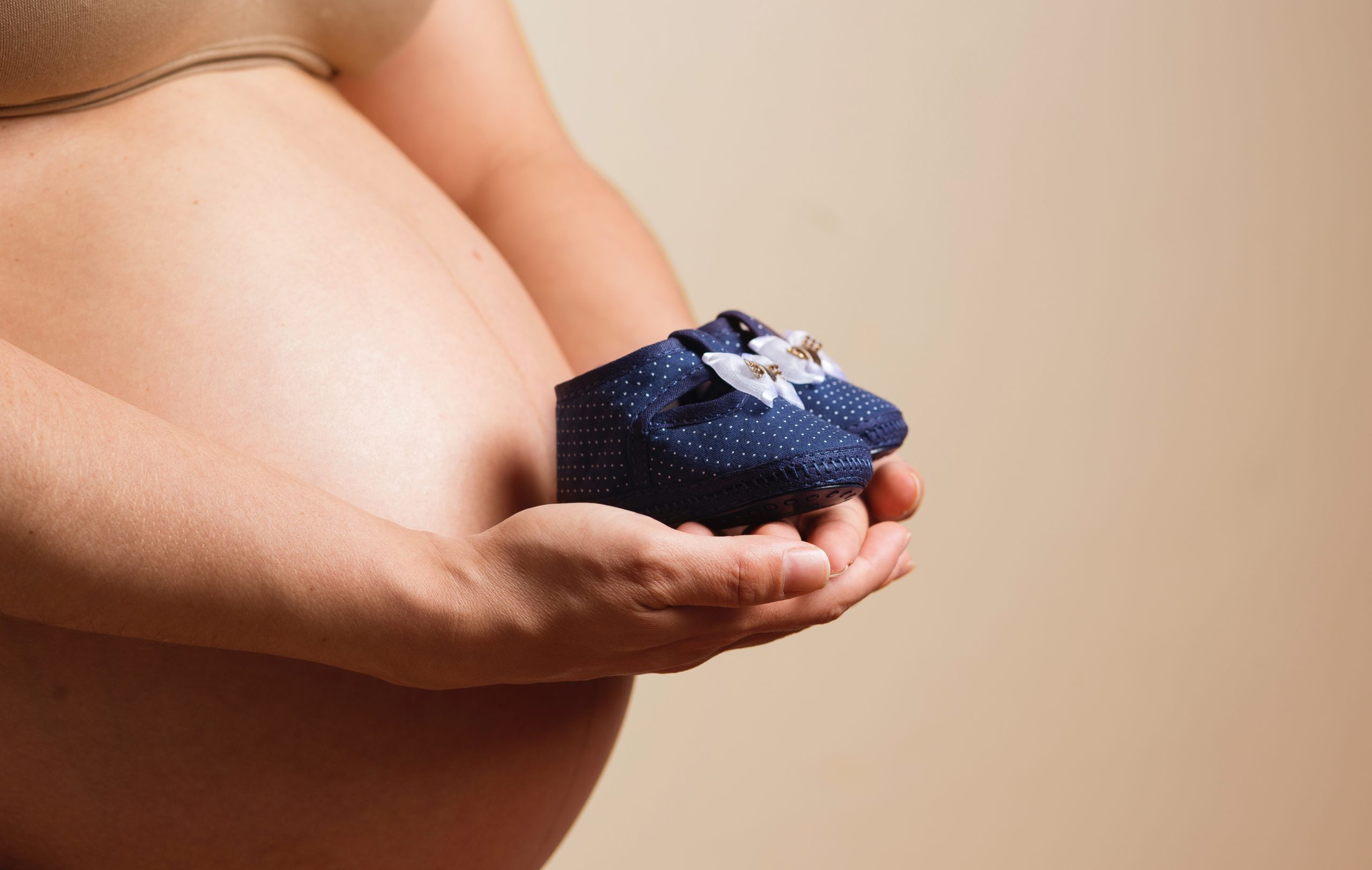The trauma of losing a baby is a difficult time for any couple, but especially for the new mom-to-be. After miscarriage and other forms of pregnancy loss, most couples have many questions that need to be answered. Many people take it upon themselves to answer why the miscarriage happened and what they could have done to prevent it or if they are responsible in any way. In this article we are going to talk about Pregnancy Loss, how to cope, grief and overcome the pain after any type of pregnancy loss. And I am also going to give you some tips to keep in mind for your first ultrasound that could be a warning sign of a possible miscarriage. Ready? Let’s begin.
Why miscarriages happens?
Usually miscarriage is rarely anyone’s fault, and sometimes pregnancy loss is even a predetermined outcome at the time of conception. There may not be any explanation at hand why miscarriages happen. Even though the medical community recognizes a few known miscarriage causes such as genetic or chromosomal. A number of theories abound regarding the cause of miscarriage is undetermined most of the times.
Causes of miscarriages.
One-time pregnancy loss, also called sporadic, are usually caused by chromosomal abnormalities while the fetus develops. Chromosomal abnormalities such as extra chromosomes or missing genes may cause the baby to stop developing and eventually to be miscarried. After the first miscarriage, most medical professionals do not conduct testing for the cause of miscarriage since chromosomal flaws are usually random, one-time events. Miscarriage due to chromosomal problems may occur to any woman at any age, but those who are 35 years old and above are at highest risk.
When a miscarriage happens two times in a row or more, the cause is unlikely to be random chromosomal errors. Usually, doctors will do some testing to find causes after the third pregnancy loss. About 50% of the cases, doctors find a cause for recurrent miscarriages and then the woman is given treatment in her next pregnancy. However, half of the cases may not reveal a cause. At any rate, a woman may still get pregnant again even with two unexplained miscarriages. And still with greater chances of a normal pregnancy than another miscarriage.
According to the March of Dimes about 70% of first trimester miscarriages are related to genetic issues, as well as the 20% for the second trimesters.
The following is a list of some of the most commonly causes of recurrent miscarriages:
- Abnormalities of the maternal uterus (this includes Septated, Bicornuate, Didelphis, unicornuate or arcuate uterus)
- Pathologies of the uterus (this includes endometrial polyps, or intra-cavitary fibroids)
- Maternal blood clothing disorders.
- Certain chromosomal conditions.
- Thyroid disorders.
- Underlying medical conditions such as Diabetes or High blood pressure.
- Immunological disorders such as high levels of natural killer cells.
- Drug, Alcohol or any other substance abuse.
Doctors believe that low progesterone and other hormonal imbalances may cause recurrent miscarriages as well. Although treatment with progesterone supplements is fairly common after one or two pregnancy losses, however, not all medical practitioners agree on the practice.
Other Types Of Pregnancy Losses such as Stillbirth.
Pregnancy losses after the 20th week are called stillbirths. Stillbirths usually have different causes from earlier miscarriages, although chromosomal errors in the baby can also cause stillbirths. The most common causes of stillbirths and preterm labors are cervical insufficiency, problems in the placenta, and preterm labor due to medical issues in the mother such as preeclampsia. No matter what may be the cause of pregnancy loss, the woman is advised to seek out emotional support from friends and relatives. Counseling helps a lot in dealing with the emotional aftermath of miscarriage.
How to heal emotionally from a pregnancy loss.
Initially, the emotional impacts of a miscarriage can be devastating. While every person will process the loss differently, the range of emotions can include:
- Grief
- Hopelessness
- Sadness
- Guilt
- Anger
- Jealousy (of other parents)
- Intense feelings of loneliness (especially if there are a lot of parents in your social circle)
Share the post!
Warning signs that suggest a possible miscarriage that are detected during an Ultrasound.
- Size are smaller than dates.
- Very Low Cardiac activity during the first scan, usually below 60 beats per minute.
- Bizarre development of the gestational sac or the Yolk sac.
- Abnormal implantation of the gestational sac ( too low or to high in the cavity)
- Bizarre shape of the embryo.
For more in deep information about first trimester fetal ultrasounds check any of the following links below:
All you need to know about miscarriages.
Normal first trimester 6 weeks ultrasound.
Abnormal first trimester ultrasound.
How to Heal Emotionally from a miscarriage, here you have some tips.
Create memories of your baby.
You might want to name your baby, find comfort in holding a memorial service, personalizing a piece of jewelry, planting a tree or creating another memorial in your baby’s honor. You might also ask the hospital staff to make handprints or footprints, or have the baby christened or blessed, or take photos with him or her. Some professional photographers specialize in working with families experiencing pregnancy loss.
Take care of yourself.
Get adequate rest, eat a healthy diet and include physical activity in your daily routine if you are able to do so. Take medication if you need it but only under your doctor’s guidance.
Talk with your partner.
Don’t expect your spouse or partner to cope with grief the same way you do. One of you might want to talk about the baby and express emotions, while the other might prefer to withdraw. Be open and honest with each other as you deal with your feelings.
Keep a journal.
Writing down your thoughts and feelings might be an effective outlet for your pain. You might also write letters, notes or poems to the baby or about the baby.
Seek help from others.
Friends and loved ones might not know what to say or how to help. Tell them when you need their support. If you want to talk about the baby or if you’d like help keeping the baby’s memory alive, let your friends and loved ones know how you feel.
Join a support group.
Sharing with others who’ve experienced pregnancy loss either in person or online can be comforting. The baby’s grandparents or other loved ones might benefit from similar support.
Seek spiritual guidance.
If you’re religiously inclined, it may also help to speak with a spiritual leader or attend group worship events.
Talk with a therapist.
A grief counselor can help you navigate your pregnancy loss and help you recover more effectively. Depending on your needs, you might also go to couples counseling with your partner.
To visit my YouTube Channel click this link.
Final words about Pregnancy loss.
Long-term recovery from miscarriage depends greatly on your mental health and overall emotional well-being. While your body will recover from the physical symptoms of miscarriage, it may seem like you’ll never be able to process the loss of your baby.
Zadi, xo











Ultrasound is very helpful for such things.
We have our own ultrasound lab in Delhi. for more information u can visit our website:https://www.oneplusul.in/
Having a miscarriage is one of the most terrifying experience I have endure in my life. Thank you so much for this article and this information.
I know dear. Thank you so much for your kind words.
Hi dear, I hope she is much better now. A lot of us had been there sometime. I wish the best of luck to you guys. Let’s keep in touch
Absolutely wonderful post Zadi; i haven’t commented here is a while due to technical issues but it’s always extremely insightful to read your knowlage and your wisdom on these issues. I hope that you are also doing well my friend <3 <3
[…] Pregnancy Loss. How To Overcome The Pain. […]
Hi dear friend, I am doing better now that you visited back. I hope you resolve your issues soon. As usual is great to have you back.
Hahaha thank you so much; I really smiled after reading your welcoming comment. It’s a huge pleasure to hear from you again aswell. Many of the issues I had are now resolved and I can finally communicate in standard fashion and no longer have to use unconventional methods haha. I wish you are great day Zadi.
Thanks
You are so welcome Zadi. Have a great day and a fantastic weekend <3 <3
your content is very helpful, seriously early pregnancy is very important now a days. I am doing my early pregnancy scan from Window to the womb had nice experience.
So nice to know Rosie!! I am glad to be able to help.
I am you think so, thank you so much for sharing your thoughts.
[…] Pregnancy Loss. How To Overcome The Pain. […]
[…] Pregnancy Loss. How To Overcome The Pain. […]
[…] Pregnancy Loss. How To Overcome The Pain. […]